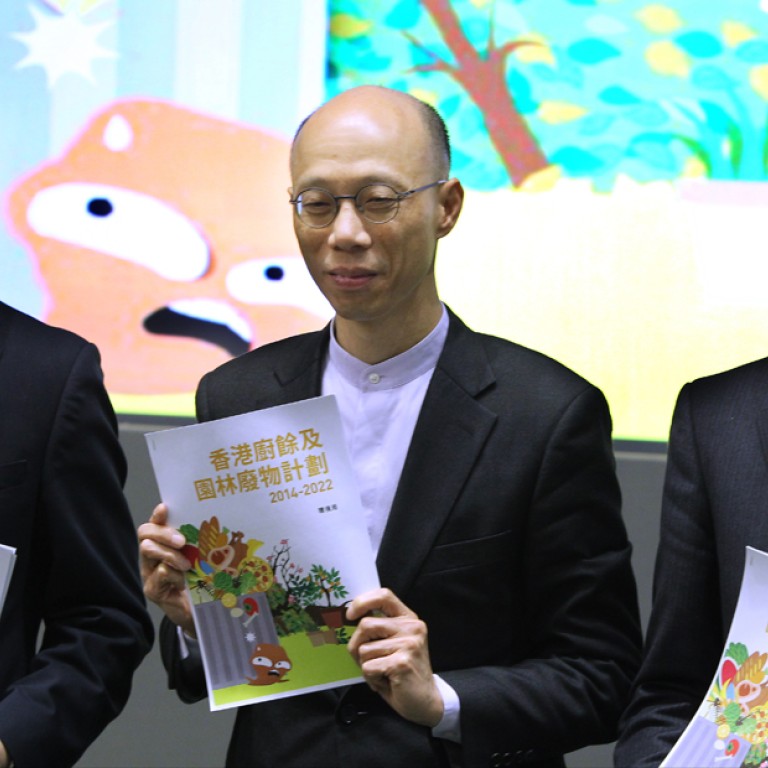
Hong Kong has reached a tipping point on handling waste
The Environment Bureau has rolled out a plan to handle food waste that is fundamental to a strategy for slashing overall waste per person by 40 per cent by 2022. New food treatment centres could help cut organic trash by 40 per cent in nine years, easing the burden on the city's landfills. Education will play a key role in cutting food waste at source - 75 per cent of it by households.
The Environment Bureau has rolled out a plan to handle food waste that is fundamental to a strategy for slashing overall waste per person by 40 per cent by 2022. New food treatment centres could help cut organic trash by 40 per cent in nine years, easing the burden on the city's landfills. Education will play a key role in cutting food waste at source - 75 per cent of it by households.
The unveiling of the plan comes ahead of the latest attempt today by officials to secure the support of lawmakers for a major landfill expansion and a waste incinerator off Shek Kwu Chau. Both proposals remain controversial for environmental reasons, despite claims that without them Hong Kong will become a city of rubbish.
They fit into the wider overall waste management strategy of which organic food treatment centres are an integral part, given that food waste accounts for a third of the rubbish dumped at the city's landfills. The goal of cutting it by nearly half would be partially met by a network of organic waste treatment centres - Siu Ho Wan on northern Lantau, Sha Ling in North District and in Shek Kong, scheduled to begin operations in 2016, 2017 and 2021 respectively. Officials envisage the three plants will have a daily treatment capacity of 800 tonnes, or 22 per cent of the 3,600 tonnes of food waste dumped daily in 2011, with further cuts expected through rubbish disposal charges and voluntary programmes to cut waste at source.
Ultimately the solution lies in effective education of consumers and businesses to generate less food waste. In this respect the Food Wise programme launched last year to encourage the ordering and provision of appropriate amounts of food and donations to the needy or charity also have a role to play. Hong Kong has reached a tipping point in waste management where, without a consensus on the way forward on a broad front from incineration to less dependence on scarce landfill, treatment of organic trash, recycling and less wasteful habits, we really do risk becoming a city of rubbish.

